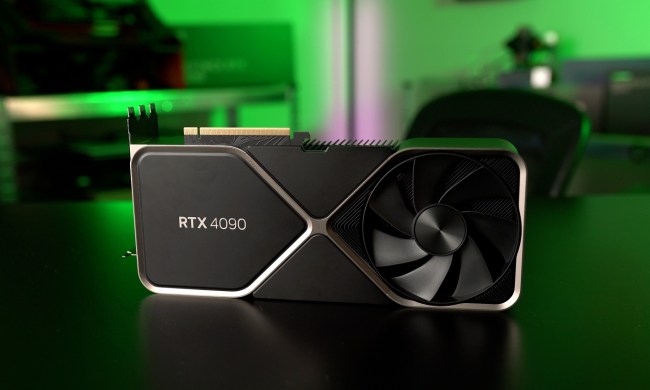You’d think that buying a laptop with an Nvidia GeForce RTX 3070 Ti graphics card guarantees a certain level of performance, but it turns out that may not always be the case.
According to benchmarks done on two laptops with the RTX 3070 Ti, there may be an up to 20% performance difference between different variants of the RTX 3070 Ti, even though they are technically the same GPU. It all comes down to the maximum power consumption.

The findings come from Notebookcheck, which has received two MSI laptops for testing purposes. Both the notebooks are equipped with an Nvidia GeForce RTX 3070 Ti graphics card, which on the surface implies that the GPU in each should perform at the exact same level. However, as Notebookcheck has determined through a series of benchmarks, there is actually a large performance gap between the two — seemingly the same — GPUs.
The two laptops in question were the MSI Vector GP66 and the MSI Stealth GS66. The latter laptop is much slimmer, which is presumably why the GPU in that model turned out to be considerably less powerful. The RTX 3070 Ti found in the MSI Stealth GS66 has a maximum TGP of 105 watts, while the GPU found in the bulkier Vector GP66 has a much higher power ceiling of 150 watts. This translates to higher clock speeds, and the difference is huge.
Boost clock speeds for the two models of the same GPU vary by a whole lot. The MSI Vector GP66 has an RTX 3070 Ti with a maximum boost clock of 1485MHz, while the slimmer Stealth GS66 comes with a GPU only capable of hitting a maximum of 1035MHz. According to NotebookCheck, this makes the GPU in the Stealth actually worse than a mobile version of its predecessor, the RTX 3070. As an example, the website cited the Schenker XMG Apex 17 gaming laptop, equipped with an RTX 3070, which actually managed to outperform the newer RTX 3070 Ti by up to 15 percent on a GPU-heavy title, Final Fantasy XV.

There are multiple benchmarks cited by Notebookcheck, and in each and every test, the MSI Vector GP66 stands victorious. The Stealth is paired with a slightly weaker Intel Alder Lake CPU, the Core i7-12700H, compared to the Core i9-12900H on the Vector. However, the graphics card performance is undeniable, with the Stealth sometimes losing to the Vector by up to 23%.
What does this mean for shoppers in search of the best gaming laptop? That depends. If you want to get the best levels of performance out of your purchase, you may need to shop more carefully. In general, slimmer, ultrathin laptops may not offer the same power as their bulkier counterparts, so if you’re after pure gaming prowess, you may want to consider getting a heavier laptop. In any case, it seems that it is once again important to check not just the name of the card, but also the TGP, in order to score a good model.



